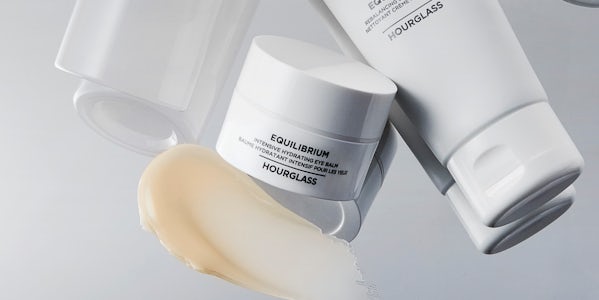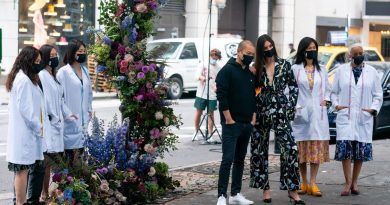Does Every Makeup Brand Need a Skin Care Line? | BoF Professional, The Business of Beauty, News & Analysis
When makeup label Hourglass quietly launched a moisturiser and serum seven years ago, the plan was never to make skin care a focus, said founder and chief executive Carisa Janes.
But the two items have proven to be steady sellers, despite small production runs and narrower distribution than Hourglass’ main colour line. Now, with the pandemic fuelling a skin care boom, the brand is adding more products in the category, including a cleanser and an eye cream. Janes said she wants skin care to someday make up half of her company’s business.
“We are putting as much attention and focus on skin care as we do colour cosmetics,” Janes said.
Hourglass isn’t the only cosmetics brand vying to become a skin care authority. Cover FX entered the category earlier this month, and Winky Lux is launching 10 skin care products this week. They join Morphe via its Morphe 2 label, which launched about a month ago, and Huda Beauty’s Wishful range, which dropped last year. Kylie Jenner’s Kylie Skin debuted in 2019, and ColourPop’s Fourth Ray line in 2018. Kim Kardashian West is reportedly planning to get into skin as well, following Coty’s $200 million investment in her KKW Beauty earlier this month.
The pandemic took an already growing skin care sector and supercharged it. Existing skin care brands are launching more products than ever this year to capitalise on concerns about “maskne” and a fixation on self-care during lockdowns. Makeup brands, which were already seeing declining sales in some categories before the pandemic, want in.
The newcomers join makeup lines like Chantecaille, Bobbi Brown and Trish McEvoy that have sold moisturisers and creams for decades, not to mention a host of skin care brands that are releasing products at a faster pace than ever.
“If that’s where the gold is, that’s where everyone is going to dive,” said Dr. Ranella Hirsch, a dermatologist.
Lower Barriers to Entry
For consumers, the power of legacy brands has waned, creating opportunities for a new push in makeup-to-skin, according to Andrea Szasz, principal in the consumer practice at Kearney, a global strategy and management consulting firm.
Anyone can create a beauty brand and put it online nowadays. You don’t need to be a L’Oréal or Estée Lauder to make skin care anymore; you can be a fast-growing start-up or influencer whose content has racked up millions of views. Robust in-house R&D teams can be swapped for third party labs capable of getting first samples to founders within two months.
“Instead of trusting brands, now they trust people,” Szasz said of influencers like Huda Kattan. Skin care has also gone from a category associated with luxury to one where consumers are happy to experiment with low-priced products, especially if they contain the hottest ingredients.
Managing the Transition
Morphe wasn’t an obvious candidate to launch a skin care line, with its reputation for intense colours and dramatic full-faced looks. Morphe 2 launched last summer as a younger, “no-makeup makeup” line with fresh-faced Charli D’Amelio as an ambassador. The company launched its five-product skin-care range under the sub-brand.
“Morphe is so heavily penetrated in makeup, [it] already was a brand that was so prolific in terms of launches and keeping that constant flow of novelty. That hasn’t gone away,” said Eden Palmer, vice president of brand and third-party merchandising at Morphe parent Forma Brands. “We now have skin care in our portfolio so we want to make sure that we’re dropping these things at the time that makes sense.”
For Cover FX, moisturiser felt like a necessary extension of its existing beauty line, which is built around customisable foundations, bronzers and SPF drops that are meant to be blended with skin care products.
Emily Culp, Cover FX’s chief executive, said its skin care was inspired by customers asking which moisturiser worked best with the line’s drops, some of which were already marketed as having skin care properties. There is also a brush with three equal-sized wells for users to drop foundation, moisturiser or “enhancing” drops to make their own blend. This allows customers to play with proportions and recreate the same mixture.
“You only want to launch what you have permission to launch,” Culp said. “We’re not getting into hair.”
Hybrids
The industry has been hyping the “hybrid,” (skin care with pigment or makeup with skin care ingredients), for years. IT Cosmetics built a makeup and skin care empire and Westman Atelier touts an anti-oxidant-filled foundation.
But the idea still had yet to truly go mainstream, said Erin Schmidt from Coresight Research. For the most part, skin care and makeup remain separate categories in the eyes of consumers.
“A few years ago, ‘clean beauty’ was nice to have, and consumers wanted all of their beauty products without certain ingredients — and then it became a requirement,” Schmidt said. She predicts the same will happen with hybrid products.
As the pandemic drags on, and housebound consumers go longer without wearing makeup, skin care will start to look even more attractive to colour brands.
“The length of the makeup crisis will define how many brands will actually converge,” Szasz added.
THIS WEEK IN BEAUTY
DTC brands branch out. Beauty start-ups are teaming up with brands in other categories to draw more customers online.
An inevitable development. An Animal Crossing makeup line has arrived.
Harry Brant dies of an accidental overdose. The socialite, 24, was a fixture in fashion and beauty circles, including a line with MAC in 2016.
Cruelty-free cosmetics come to China. The country loosened rules requiring animal testing, allowing a new class of makeup and skin care to be sold there.
Hunter Schafer talks Euphoria’s makeup. The star and Shiseido ambassador says makeup is “inextricably linked to her self-expression.”
Predictions for a post-trend world. Beauty experts have ideas about where the category is headed in 2021.
Hyram’s ascent continues. The TikTok influencer is the reigning skin care guru.
Winky Lux crosses over. The makeup company is the latest to enter skin care.
Unilever to fight inequality, climate change. The consumer products giant says it will seek out suppliers that treat workers better and feature more diverse groups in advertising, among other initiatives.





